Your Guide to Theatre Education
Christopher Shinn at The New School’s MFA Playwriting Program
In this series, David Dudley looks at the different models of theatre education around the country through interviews, with the hopes that a new student will have an easier time finding the model that works for them.
Christopher Shinn is an award-winning playwright. His works include: Dying City (which premiered at the Royal Court Theatre, in 2006), Where Do We Live, and Teddy Ferrara (which premiered at the Goodman Theatre, in Chicago). He won an OBIE for Where Do We Live, and was a finalist for the Pulitzer Prize for Dying City. He was the recipient of a Guggenheim Fellowship, an NEA/TCG Residency, and an American Psychoanalytic Association Fellowship. He received a BFA in Dramatic Writing from the New York University Tisch School of the Arts.
When was The New School's MFA playwriting program started? When did you join?
I joined in the fall of 2004, just as the New School was parting ways with the Actors Studio MFA program. The university wanted a more selective group of students, with a greater focus on production opportunities for them, and the New School for Drama was born.
What does The New School's program offer potential students?
To put it simply, we help students become better writers. We have a great and diverse faculty and each of us has a unique approach, but the goal is the same: to help the writers figure out what they are trying to say and then help them dramatize it more effectively.
There's no overriding orthodoxy other than commitment to the truth. Every writing teacher is free to teach exactly as they wish, and I hope on the most basic level students take away this message: "My teachers feel free to be themselves, so I should feel free to be me." We don't try to graduate clones or acolytes, we hope to graduate mature artists who know who they are and who feel free to pursue the realization of their vision in the marketplace.
On a more practical level, we offer: a profound commitment to collaboration with actors and directors across all three years; a full production of a full-length to every writing student in their third year; a deep dive into writing for TV, film, and new media; collaboration with other disciplines like fashion at Parsons; and a guest faculty and artists in residence chosen not just for their name recognition but for their ability to teach and their commitment to social justice.
What makes The New School's program different from others?
I think we're scrappy, both on the student level and faculty level. We didn't have a known name when I came on board—we literally were a newly named school, so no one who came to us was coming for the benefit of saying we gave them an MFA. Students came because they wanted to study with our faculty. So we attracted very idiosyncratic, interesting, self-starting students. Not careerists. During these early days the writing faculty worked extra hard because we believed in what we were doing and we wanted to get the word out about what made us unique.
That culture of self-starters both on the student and faculty side has carried over to today. These days we have much more of a reputation in the business than we had ten years ago, and I am really proud of all of us for achieving that, but we are working hard to maintain that feisty spirit—always building, always revising, always working harder than the next guy. And as we gain in reputation, it's important to me to continue to find students other programs may overlook, or who really want to be with us because of who teaches here and how we teach rather than what professional doors an MFA from our school can open.
I think we're scrappy, both on the student level and faculty level. We didn't have a known name when I came on board—we literally were a newly named school, so no one who came to us was coming for the benefit of saying we gave them an MFA. Students came because they wanted to study with our faculty. So we attracted very idiosyncratic, interesting, self-starting students. Not careerists. During these early days the writing faculty worked extra hard because we believed in what we were doing and we wanted to get the word out about what made us unique.
What are the guiding principles of the program?
Truth. Honesty. Self-scrutiny. Hard work. Love.
Following that, what's working?
I think our writers become better on every level. I think they develop skills of intimacy. I think that's an important word to use interchangeably with collaboration. It's easy to fetishize collaboration, think of it as some skill unique to creative arts. But collaboration is really another name for the challenge of human relationships, different people with different histories working together to try to make something meaningful to everyone. This involves such complex skills of knowing what you feel, learning how to articulate it, learning how to listen and how to compromise and how to deal with frustration, disappointment and disillusionment. To me what's especially exciting about this work is that these are often the dilemmas characters face in plays, when they come into conflict with themselves and others—the challenge of the rehearsal room is so often the challenge of the dramatic work and vice versa. We are all just trying to figure out how to be with and alongside one another and keep our life force out in front of our potential for destruction. I think our program has a lot of life in it, without denying any of the darkness, and I think that helps everyone grow in their capacity both to write and to put on plays—and ultimately to live more meaningfully.
Photo: Students working Christopher Shinn.
What kinds of challenges have you faced? How do you intend to approach them in future?
I think institutions always come with challenges. I have never worked with one—whether a university or a theatre—that didn't. These challenges are the challenges of being a person among other people focused on a common task where differences are inevitably going to emerge.
I sometimes get frustrated with the institutional tendency towards intellectualizing; institutions have a very hard time speaking in simple emotional language about human relationships and interactions. We all know "institution speak" when we hear it. That language makes things harder to think about at times—think about in a real, embodied way. So I think the challenge of having an arts program live within an institution is how to keep the blood flowing, to make sure the restraint and conservatism inherent to institutions never carries over into the training or the creation of art. Training in drama should be dramatic! The institutionalization of drama in our society is problematic on the professional level and I do not want us to contribute to that. I think there are ways institutions can be creative, flexible, rigorous, and inspiring despite the attendant downsides.
What's missing, in your opinion, from the current education/training programs available?
I don't know other programs well enough to say what they are missing. I remember my own training decades ago and can say that what was missing for me back then was a feeling of my work mattering. On a deep existential level I didn't feel like there was any institutional communication about what meaningful work could mean both for my own psyche and for the society I lived in.
I like to think we help our students understand how their work can be meaningful to themselves and to the world. And I hope within that there is a critique of careerism or "fame" as goals. I hope we can convey a little irony—an admission of the absurdity of human life and of choosing to be an artist. Something Tony Kushner told me in an undergrad class he taught when I was nineteen is that artists should both believe their art can change the world, and also believe it is ridiculous to believe their art can change the world. That made a huge impact on me.
Who do you feel is the ideal candidate? Who are you trying to bring into the New School family?
Someone who really wants to learn. Someone not afraid to be themselves. Someone who doesn't want to please the teacher or, if they have a propensity for wanting to please authority, has the desire to work through that. Someone who is ambitious but not arrogant or hostile in their healthy self-regard. Most importantly: people telling stories no one has told before.
What do you hope your graduates/trainees do, once they complete the program?
I hope they have meaningful lives, create work they feel is in their voice and not someone else's, and can communicate freely and compassionately with a wide range of others, both within and outside of the entertainment industry.
Any changes planned for the future?
Not planned so much as being planned. We are always trying to change and get better while preserving what is working well!

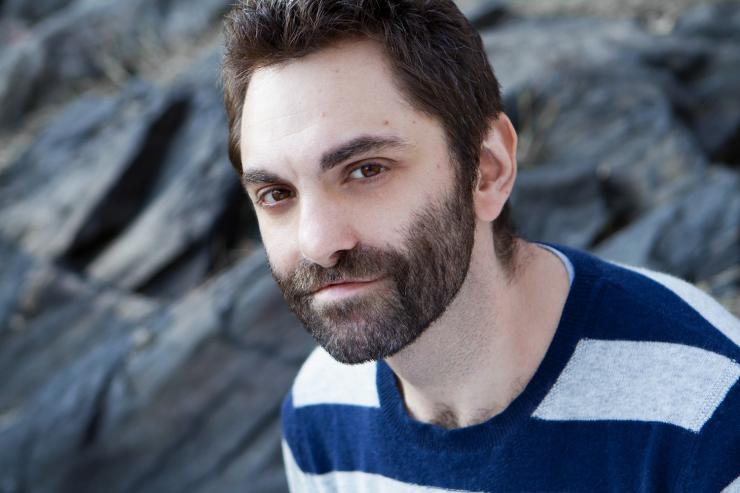
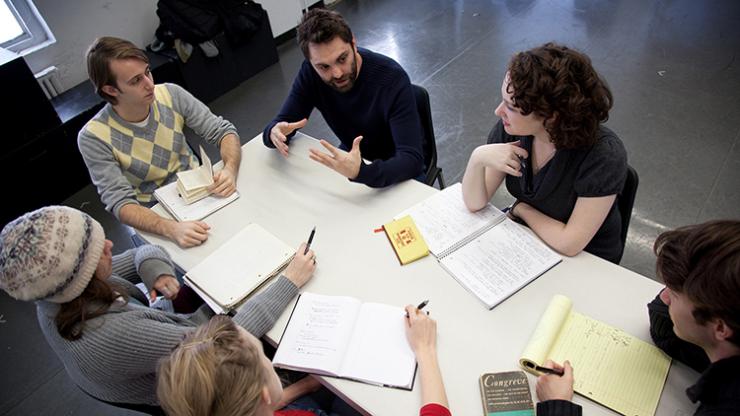
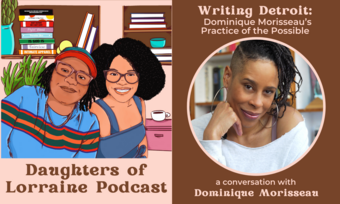



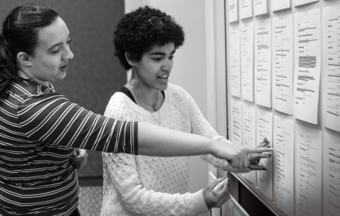

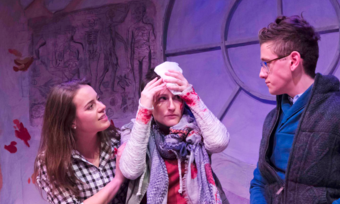


Comments
The article is just the start of the conversation—we want to know what you think about this subject, too! HowlRound is a space for knowledge-sharing, and we welcome spirited, thoughtful, and on-topic dialogue. Find our full comments policy here